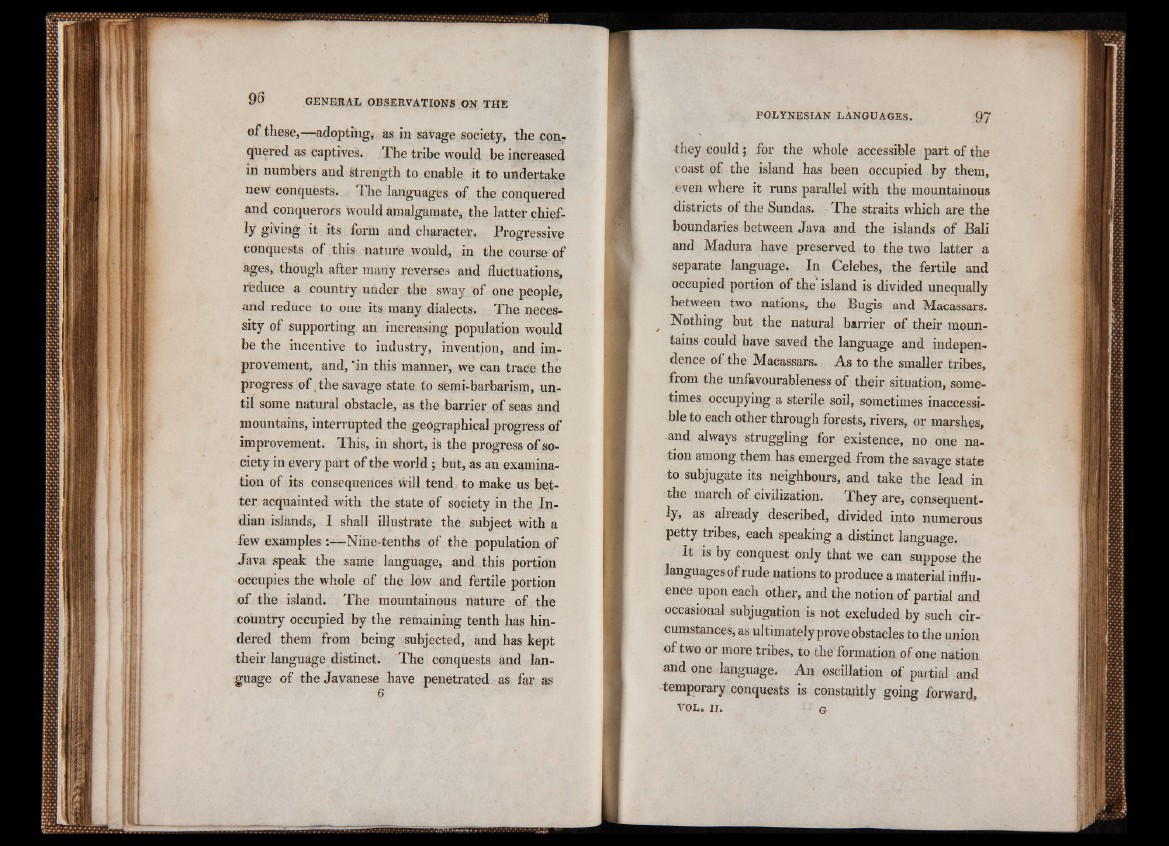
of these,—adoptihg, as in savage society, the conquered
as captives. The tribe would be increased
in numbers and strength to enable it to undertake
new conquests. The languages of the conquered
and conquerors would amalgamate, the latter chiefly
giving it its form and character. Progressive
conquests of this nature would, in the course of
ages, though after many reverses artd fluctuations,
reduce a country under the sway of one people,
and reduce to one its many dialects. The necessity
of supporting, an increasing population would
be the incentive to industry, invention, and improvement,
and,'in this manner, we can trace the
progress of the savage state to semi-barbarism, until
some natural obstacle, as the barrier of seas and
mountains, interrupted the geographical progress of
improvement. This, in short, is the progress of society
in every part of the world; but, as an examination
of its consequences will tend to make us better
acquainted with the state of society in the Indian
islands, I shall illustrate the subject with a
few examples :—Nine-tenths of the population of
Java speak the same language, and this portion
occupies the whole of the low and fertile portion
of the island. The mountainous nature of the
country occupied by the remaining tenth has hindered
them from being subjected, and has kept
their language distinct. The conquests and language
of the Javanese have penetrated as far as 6
they could; for the whole accessible part of the
coast of the island has been occupied by them,
even where it runs parallel with the mountainous
districts of the Sundas. The straits which are the
boundaries between Java and the islands of Bali
and Madura have preserved to the two latter a
separate language. In Celebes, the fertile and
occupied portion of the' island is divided unequally
between two nations, the Bugis and Macassars.
t Nothing but the natural barrier of their mountains
could have saved the language and independence
of the Macassars. As to the smaller tribes,
from the unfavourableness of their situation, sometimes
occupying a sterile soil, sometimes inaccessible
to each other through forests, rivers, or marshes,
•and always struggling for existence, no one nation
among them has emerged from the savage state
to subjugate its neighbours, and take the lead in
the march of civilization. They are, consequently,
as already described, divided into numerous
petty tribes, each speaking a distinct language.
It is by conquest only that we can suppose the
languages of rude nations to produce a material influence
upon each other, and the notion of partial and
occasional subjugation is not excluded by such circumstances,
as ultimately prove obstacles to the union
of two or more tribes, to the formation of one nation
and one language. An oscillation of partial and
temporary conquests is constantly going forward,